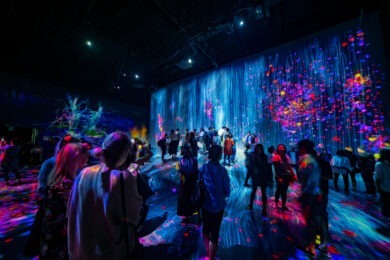Insider tips for questions to ask event partners for beginning planners
We see you, accidental planners. You applied for a job as an executive assistant, workforce development trainer or office manager. Your LinkedIn profile proudly shares your experience as a marketing genius, administrative coordinator or employee engagement specialist. Now you have been tapped to plan an offsite for the executive team, a quarterly all-staff meeting or a new product activation. Where do you begin? What are the pitfalls to look out for? How do you keep this task from overwhelming all the other to-dos on your plate?
You lean on your partners. An entire ecosystem of experts at associations, convention and visitors bureaus (CVBs), destination management companies (DMCs), event planning agencies, caterers, entertainment and speaker bureaus, audio-visual (AV) companies, gifting providers, event technology platforms, hotels and venues are at the ready to assist occasional and tangential meeting organizers.
We asked some of the people creating meeting magic today alongside the massive influx of new meeting designers that have come to the industry since Covid for tips on what to ask your partners and when to get started. Consider this your global positioning system for navigating the exciting world of producing events. You may find that you like it here so much, you become a permanent resident. Enjoy the ride.
How to Organize Top-Tier Group Catering Experiences
What happens in the kitchen can make an event memorable or disastrous. Meals nourish attendees, activate emotional senses and are where a lot of the perceptions about a gathering are formed. That is why aligning with the catering team is essential. We asked chefs for recommendations on serving up a cost-effective and memorable meal. These are the secrets you need to know after the contract has been signed to ensure everything goes according to plan.
 Expert: Joe Derla, executive chef at Signia by Hilton San Jose
Expert: Joe Derla, executive chef at Signia by Hilton San Jose
What do you wish new meeting professionals knew about working with catering teams and chefs?
Communication is key: Clearly articulate your vision, guest count, dietary requirements, and any thematic or cultural considerations as early as possible.
Menu Customization: Discuss options for customizing menus to fit your budget and event theme, including the ability to cater to dietary restrictions
Food quality and presentation: Understand the importance of high-quality ingredients and professional plating to enhance the overall guest experience
Chef expertise: Inquire about the chef’s experience with large-scale events and their ability to adapt to various cuisines and styles.
Read More: Beyond the Plate: The Art of Culinary Event Planning
What questions should they be asking?
What experience do you have catering events of this size and type?
How do you handle unexpected guest counts or potential food shortages?
What protocols do you have in place to ensure food safety and hygiene?
How do you accommodate dietary restrictions and allergies?
What is the most creative F&B program you have delivered?
I took the farm-to-table concept to a new level by inviting a variety of farmers—specialists in produce, spices, seafood and ranching—to my restaurant. Together, we educated guests on the journey from farm or wildlife to the table. I called this program “Happy Hour with Our Farmers”, which not only improved the dining experience but also generated additional revenue for the restaurant.
Through our banquet dining program, we also regularly incorporate creative plating options, like “Canned Tuna” (Bluefin Tuna, Sushi Rice, Ikura, Puff Wild Rice and Micro Wasabi presented in a tin container) and macarons and other mini-pastries presented as a “painting” with dry ice for dramatic flair.
Any tips for accommodating special dietary needs?
Menu variety: Provide a wide range of menu options with substitutions to cater to different dietary needs, including vegetarian, vegan, gluten-free, dairy-free and low-sodium choices.
Staff training: Educate your staff about common dietary restrictions and how to answer questions about ingredients accurately.
Flexibility: Be open to customizing dishes by swapping ingredients or offering alternative sides to suit individual needs.
What zero-proof, functional options should meeting professionals be considering?
I recommend beverages that are formulated with added ingredients to promote specific health outcomes, such as improved digestion, enhanced mental clarity, boosted immunity or increased energy levels.
How do you help meeting professionals choose menus that are budget-friendly in a time of inflationary F&B costs?
It’s essential to consider the dietary requirements and restrictions of your guests, no matter the type of event you’re planning. Equally important is understanding the audience, as this plays a significant role in determining appropriate menus and portion sizes. For example, attendees in all-day meetings typically prefer lighter, protein-forward options to sustain energy while sitting for extended periods. On the other hand, more active groups may benefit from meals that include carbohydrates and other heartier options to provide the necessary fuel and balance.
How to Align Your Event with the Back of the House
Behind the scenes at an event, a small army of hotel staff works to carry out all the details meeting professionals plan for months or years before registration opens. Much of that is coordinated through the conference services manager (CSM). We asked the people on the ground for a look behind the pipe and drape. These are the secrets you need to know after the contract has been signed to ensure everything goes according to plan.
Read More: Why Early Bird Registration Specials Don’t Work and Other Revelations from a New Maritz Study
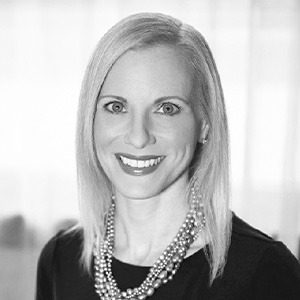 Expert: Jennifer Kellogg, vice president of meetings + events global for the United States and Canada, Marriott International
Expert: Jennifer Kellogg, vice president of meetings + events global for the United States and Canada, Marriott International
What should beginning meeting professionals know about working with hotel event teams?
Hotel event management teams are there to be your partner and help you to deliver a memorable and successful event. It’s important to provide your event manager with your detailed event plan and keep them continuously updated when changes occur. Start with your vision and goals for the event. Then, share your event agenda, timelines, historical information from previous years, expected and current attendee numbers, guest preferences and budget.
In addition, sharing plans your group may have outside of the hotel will help the team understand when areas like the lobby might be busy or when attendees might return and want a nightcap.
Every detail is important to help your event manager coordinate alongside other departments such as AV, housekeeping, front desk and restaurants to be sure they’re prepared for your group’s needs.
What questions should planners ask attendees during registration to help hotel staff better accommodate special needs?
Today it’s standard to ask about attendees’ dietary restrictions, accessibility needs and emergency contacts, which is important information for the hotel to have about your group. Also, allowing attendees to sign up for sessions and RSVP to dinner events will guide your set-up and guarantee numbers that need to be provided to the hotel 14 days prior.
With an increased focus on neurodivergence, asking about accommodations will show attendees they’re welcome at the event and help the hotel craft solutions like quiet rooms or closed captioning in a general session.
Lastly, asking for the attendee’s Marriott Bonvoy number will allow the hotel to greet the guest according to their status and provide a tailored experience based on their preferences.
How far in advance do you need to know information about group preferences?
We always recommend sharing group details with your event manager from the first point of engagement and throughout the planning process to enhance the hotel’s ability to properly prepare for your group’s experience.
For final event details, hotels typically need to know group preferences for catering and event planning at least 2 to 4 weeks in advance. This allows sufficient time for the culinary team to order ingredients, plan staffing and accommodate any special requests such as dietary restrictions or menu customizations. For larger events or those with complex needs, providing information even earlier is recommended to ensure everything runs smoothly. Timelines can vary based on the hotel’s policies and the event’s scale, so it’s important to discuss deadlines with your event manager and hotel team.
What are some ways to be budget-conscious?
Work with the Chef to optimize your food and beverage budget by selecting seasonal or locally sourced ingredients, offer fewer course options, or serve plated meals instead of buffets to control portion sizes and food waste.
Focus your budget on experiential event elements that will provide the biggest impact, like AV equipment and lighting, unique venue spaces, or standout décor elements, and minimize spending on less critical items like custom-branded products or luxury gift bags.
Sharing your event budget with your event manager will allow them to provide the most impactful proposal while staying within your budget.
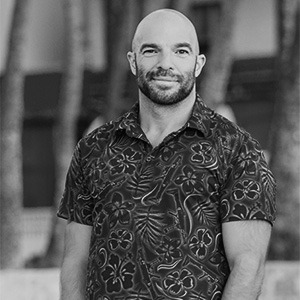 David T. Stevens, co-founder and wellness architect, Olympian Meeting
David T. Stevens, co-founder and wellness architect, Olympian Meeting
Why is wellness an important part of event design?
When people are well-moved, well-rested, well-fed and well-connected, they learn more and feel like the event was worth their time, which leads to higher survey scores and higher return on event investment. Think about it: how do you feel after most multi-day conferences or events? Probably not great. Imagine if your health was actually considered when you attended something.
How can an accidental planner learn more about what wellness looks like in event design? Are there any resources that you would recommend for someone who might be limited on time and budget?
The first thing to understand is the difference between a “wellness event” and integrating wellness into corporate events. I’m quite biased toward my YouTube channel, “Return on Wellness,” but I would also check out Caesars Wellness Menu and ensure you’re subscribed to Smart Meetings. Olympian Meetings has a custom-trained ChatGPT. Otherwise, you can check out what you find on Google. Unfortunately, there is a lack of strategy around integrating wellness into events, and mostly people are just doing puppy yoga.
What does an event with wellness as a strategy/building block (rather than a few wellness-geared activities) look like?
The big difference is, it’s inclusive. There will be things that speak to everyone, and there is time and room to experience them. You won’t have to choose between experiencing the wellness programming that is offered and an education session, just like you won’t have to choose between a party and sleep. There will also be plenty of food and beverage options for everyone, regardless of if an attendee is trying to stick to a diet and/or refraining from alcohol.
 Alan Kleinfled, owner, Arrive Management Conference Solutions
Alan Kleinfled, owner, Arrive Management Conference Solutions
What do you wish new meeting professionals knew about your job?
That I’m here to make their jobs easier, more efficient and more impressive. By delegating tasks they are not experts in, meeting planners demonstrate their leadership skills and management abilities.
What questions should first-time event planners be asking when contacting you?
The fact that meeting planners realize they need safety as part of their events is really the most important thing in this regard.
What ways can new meeting professionals make your job easier?
Realize they may not know what they need, and that’s okay. If they know what they need and can clearly illustrate that, it helps me focus on what best serves them. If they aren’t 100% clear on what they require, that’s okay, too. They should let me know that. Event safety often covers a large area, and I don’t expect them to know the details of what might best fit their needs.
What are the most important aspects of event security that new event planners should keep in mind?
That it’s complex and different for each event or meeting. That it depends on the time of year, location, demographics of attendees and other factors. That it changes often, and trends can sometimes move quickly. And, finally, that it has to be part of the planning process and not something that meeting planners add on later. It’s most effective when integrated at the beginning of the planning process.
 Kate Patay, vice president of global engagement, Terramar
Kate Patay, vice president of global engagement, Terramar
What questions do you wish planners asked more often? What information do you need from planners to be effective?
In an ideal scenario, a planner would ask, “What’s the one experience you’ve always dreamed of planning?” This question sparks creativity and allows the DMC contact to share the unique experiences they’ve envisioned. To truly be effective, it’s essential to grasp not only the budget but also the event’s goals. Understanding any previous experiences the group has had—what they loved or disliked—will help us propose ideas that resonate with their demographic while ensuring everything stays within budget.
What is the most important piece of advice you would give to someone planning their first event?
You don’t have to do this alone! Ask questions and learn why things operate the way they do. Understanding each role’s contribution to the overall success of the event will make you a well-rounded planner who can troubleshoot any issues that arise. The more you know about how everyone plays a part, the better equipped you’ll be to ensure everything runs smoothly.
Kelly Truitt, director of sales, Southern California, Terramar
What common mistakes have you seen new planners make that could have been avoided?
New planners can significantly reduce their workload by forming connections with Destination Management Companies (DMCs) in the various cities where they organize events. Having a dedicated resource who understands the local vendors and options can save a tremendous amount of time and effort, allowing planners to focus on the bigger picture. DMCs can provide invaluable insights and recommendations, making the planning process smoother and more efficient. It’s a smart move to leverage their expertise, especially in unfamiliar locations.
Pilar Mustafa, director of sales, Napa/Sonoma, Terramar
What DMC resources do you think are essential for new planners to be aware of?
DMCs are an invaluable resource when it comes to understanding the nuances of their specific destinations. They not only have extensive knowledge of various suppliers and vendors, but they also possess insights into available venues and their unique capabilities. Their established relationships allow them to secure bookings at the most sought-after spots and to craft authentic local experiences that planners might not discover on their own.
Additionally, DMCs bring critical local expertise regarding timing, such as rush-hour traffic, which can vary greatly between cities. For example, in wine country, rush hour often coincides with the closing hours of tasting rooms, typically around 4 p.m. With this knowledge, they can expertly schedule activities and transportation to avoid delays, ensuring that you won’t end up stuck on single-lane roads in the middle of the vineyards. This kind of insight can make a significant difference in the overall success of an event.
Lisa Deleon, vice president – global sales, Terramar
How soon in the process should planners engage DMCs?
As soon as a destination is selected and approximate dates are determined, the DMC should be included in the conversation. Often, the more sought-after venues hold dates for their partners first. Your DMC can provide valuable insights about the city, helping you choose the best venue based on factors such as proximity, price point, and the overall experience you want to create. This collaboration ensures you make informed decisions that enhance the event.
Brisa Kumul, director of sales, Cancun/Riviera Maya/Tulum, Terramar
Any tips for containing budgets while still having an impact?
Being transparent about your budget is crucial! Whether your budget for an event is $50,000 or $5 million, it significantly influences what your DMC partner can propose. Clearly sharing your budget from the beginning allows for more realistic discussions, ensuring that the options presented truly maximize your financial resources. It’s our role to get creative and help you get the most value for your investment, so having that conversation early on is essential.
 Brandt Krueger, senior production manager, EideCom
Brandt Krueger, senior production manager, EideCom
What questions should planners be asking their AV providers?
The biggest thing is to actually ask questions. You should never be afraid to ask a question about your AV quote or bill because you’re worried about feeling stupid or not wanting to “bother” your AV provider. If you have a question about a line item of an AV quote, ask them about it. Evasive or overly technical language can be a huge red flag. Your AV company should be able to explain every single line in their quote in a way that makes sense to non-technical people. The biggest questions come into play when you’re signing your venue contracts—that’s where the real money is often saved.
What information should planners collect, and what should they give their AV providers?
You know more than you think you do! There’s obvious stuff like what venue and ballroom you’re going to be in, along with how many people will be likely to attend, but many planners will hold off on sending agendas and speaker needs because “so many things can change between now and then.” But most of the time, you know roughly how the event is going to flow, roughly how long the days are, roughly how much general session there will be versus breakouts (and how many), whether only individual speakers will get on stage or if there will be panels. All of that information can be helpful to your AV provider even in the quoting phase. It helps them know how many microphones you’ll need, which in turn helps them know how big a soundboard you’ll need. It also helps with properly estimating overtime and labor costs, rather than keeping it as a surprise for the end!
What are some things planners can do to make their event better regarding AV?
While I always start with quality audio, lighting is the least expensive “bang for your buck.” Even a few thousand dollars of additional lighting can dramatically change the look and feel of even the drabbest hotel ballrooms. Beyond that, I’m encouraging planners to look for “quality of life” improvements for their attendees, including accessibility and inclusion services such as transcription, captioning and “second screen” services, most of which have to be connected with existing AV infrastructure anyway. You don’t have to be a person with a disability to benefit from these programs. A recent client of mine had only a couple of attendees asking for transcription services due to being hearing-impaired. They offered the service, and almost 25% of their attendees took advantage of it!
What are some things planners don’t know or don’t think about but should?
I’d re-emphasize the subject of paying attention to AV concerns at the venue selection stage. So many planners get wrapped up in the beauty of a location, the fantastic food or the amazing spa that they aren’t looking at AV logistics that could cost them thousands in additional labor or equipment.
What do planners get wrong about working with AV professionals?
I’d say the biggest mistake is challenging your AV provider about the number of people it takes to put on an event. AV and production companies make the majority of their profit off of management fees and equipment markup. Labor, flights, hotel rooms, per diem—these are not profit centers for most vendors, so there’s no incentive to artificially inflate those numbers. I’m talking specifically of third-party AV companies. If you’re locked into in-house AV due to contract restrictions, then there is an incentive for them to pad the bill. That’s another reason I’m not a fan of these exclusivity provisions, and why I always recommend getting that third-party quote even if you plan on using the in-house. Just so you have something to compare it to!
 Anca Platon Trifan, CEO of Tree-Fan Events LLC
Anca Platon Trifan, CEO of Tree-Fan Events LLC
What questions should planners be asking their AV providers?
Planners need to ask clear, foundational questions to align their vision with the AV provider’s technical execution such as:
Event Details:
- What experience do you have with events like mine (size, format, venue)?
- Can you walk me through the proposed AV setup (sound, visuals, lighting)?
- What backup systems are in place in case of technical failures?
Logistics:
- How early will your team arrive for setup and testing?
- What are the venue’s AV capabilities, and how do we supplement them?
Budget & Transparency:
- What’s included in your quote (labor, rentals, setup/teardown)? Are there overtime or hidden fees?
- Can you recommend cost-saving alternatives if my budget is limited?
Technology:
- Do you have scalable solutions for hybrid or virtual components?
- How do you ensure the AV design aligns with the audience size and room acoustics?
What information should planners collect, and what should they give their AV providers?
For AV providers to deliver a seamless event experience, they need key details upfront to begin planning effectively. These details help set expectations, identify potential challenges and align the AV setup with the event’s goals. Here’s what an AV provider will typically ask for as the conversation begins:
Event Scope:
- When and where is the event happening (date, time, venue)?
- How long will the event run, and what does the schedule or run-of-show look like?
Audience & Attendance:
- What is the expected audience size (in-person, virtual or hybrid)?
- Are there seating layouts, room diagrams or specific audience arrangements to consider?
AV Requirements:
- What type of content will be presented (e.g., keynote presentations, panel discussions, video playback, live streams)?
- What specific equipment is needed (e.g., microphones, projectors, LED screens, sound systems, stage lighting, streaming tools)?
Venue Details:
- What are the venue specifications (floor plans, ceiling height, power capabilities, rigging points and load-in/out logistics)?
- Are there any venue AV policies, such as required partnerships, exclusivity fees or labor rules?
Creative/Visual Assets:
- Will the AV provider receive slide decks, videos, branding guidelines or visual cues (e.g., color palettes, font styles)?
- Are there any custom elements (animations, visuals or branding features) that need to be incorporated?
Accessibility Needs:
- Are there specific accessibility requirements, such as closed captioning, hearing assistance devices or other accommodations?
By sharing this foundational information upfront, planners enable AV providers to design an AV plan that aligns with the event vision, avoids technical hurdles, and maximizes the attendee experience.
However, the best practice is to bring in the AV production project manager during the initial venue walkthrough. This step allows a trained AV professional to address technical specifics, uncover potential challenges and ensure that no detail is overlooked, saving time and preventing last-minute surprises.
The AV production project manager will:
Assess Venue Infrastructure:
Power capabilities, rigging points, ceiling height and load-in/out accessibility.
Room acoustics (carpeting, walls, windows) and potential sound challenges.
Screen/LED wall placement options and sightlines for the audience.
Evaluate Technical Needs:
Identify the right AV equipment for the event (microphones, projectors, LED walls, sound systems, lighting).
Address hybrid or virtual components if required.
Clarify Venue Policies:
In-house AV requirements, exclusivity fees and labor restrictions.
Permits for rigging or power usage.
Mitigate Risks:
Pinpoint any challenges related to power load, setup time or signal interference.
Plan for backups in case of equipment failure.
Planners should focus on sharing the vision and goals of the event, while the AV production project manager translates this into actionable AV requirements tailored to the space and event format. By involving the AV lead early, planners can avoid miscommunication, unexpected costs and technical hiccups during the event.
What are some things planners can do to make their event better regarding AV?
Prioritize a Site Visit: Walk the venue with the AV team to identify potential challenges (acoustics, lighting spots, power access) as described above.
Plan for Rehearsals: Schedule a full AV run-through before the event. This avoids last-minute surprises with equipment, presenters, or content.
Balance Aesthetics and Functionality: Choose screen placements, lighting and sound systems that enhance attendee engagement without obstructing views or conversations.
Prepare Content Early: Share slide decks, videos and other digital materials well in advance so AV teams can test compatibility and quality.
Embrace Technology: Leverage tools like LED walls for dynamic visuals, AI tools for audience engagement or virtual platforms for hybrid components.
What are some things planners don’t know or don’t think about but should?
Power Requirements: Large AV setups demand dedicated power circuits to avoid outages that could disrupt the production.
Read More: Elevate the ‘Video’ in Your Event Video Production Strategy
To prevent issues, bring a qualified AV professional to:
- Assess the venue’s power capacity for AV load.
- Identify needs like power distribution units (PDUs), backup generators or extra circuits.
- Confirm power access points and plan safe, efficient cabling.
- An expert ensures a smooth AV setup and minimizes the risk of disruptions.
Room Acoustics: Poor acoustics can ruin presentations. High ceilings, carpeted floors or large windows can affect sound clarity.
Load-In/Out Time: AV setup and teardown take longer than most planners anticipate, especially for large-scale productions. Include buffer time in your schedule.
Signal Delays: Wireless microphones, video feeds and streaming equipment can sometimes face lag. Ask for wired alternatives if latency is critical.
Backup Equipment: Tech fails happen. Planners should confirm that backups are in place for key systems (microphones, laptops, projectors).
What do planners get wrong about working with AV professionals?
Underestimating costs: AV is often viewed as an afterthought, and budgets may not reflect the event’s actual needs. Cutting corners here can reduce audience engagement and production quality.
Assuming AV is One-Size-Fits-All: Every event requires a tailored AV setup based on venue size, audience type and content. AV is not interchangeable.
Poor Communication: Waiting until the last minute to share content or changes can overwhelm the AV team and lead to avoidable mistakes.
Read More: Event Tech: Audiovisual Staffing
Thinking AV Teams Work Miracles: AV professionals are highly skilled, but without proper planning and time, they cannot solve every problem at the last minute.
Skipping Tech Checks: Rehearsals are critical. AV pros need time to troubleshoot, balance sound levels and test visuals to avoid any live mishaps.
How to Avoid Your Meeting Being Disrupted by a Hotel Labor Action
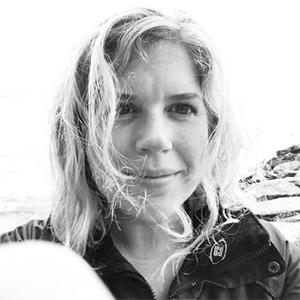 Expert: Carrie Sallgren, director of customer organizing at UNITE HERE
Expert: Carrie Sallgren, director of customer organizing at UNITE HERE
How can meeting planners know if union-represented workers at a prospective meetings hotel face a labor action or are on strike?
Unfortunately, hotels rarely give advance notice that a strike is ongoing, and guests sometimes learn of a strike only upon arriving at the hotel and being met by a boisterous picket line. Our union has created a Labor Disputes Map at FairHotel.org where you can search hotels by name or city to learn whether a hotel is on strike (or at risk of strike or other labor dispute) and find alternatives. Meeting planners can also use FairHotel.org to find model contract language that requires a hotel to alert them of any labor dispute.
You can also use FairHotel.org to choose a union hotel for your event (there are over 1,000 FairHotel locations across the U.S. and Canada, including hotels and casino resorts from every major brand). When you “stay union,” you’re staying at a hotel where workers have fair wages, quality health care, sick pay and protections against harassment on the job. That attracts the “best of the best” workers for your attendees—and helps build a future where good jobs are the industry standard.
From a meetings perspective, why does this matter?
Labor disputes can disrupt an event that you’ve been working on for months. Hotels may suspend services while trying to operate with skeleton staffing, and picket lines run outside struck hotels for up to 24 hours a day. That can distract from the core topic of the meeting a planner has been designing, and attendees and presenters may not be willing to cross a picket line. For example, the comedian Steve Hofstetter recently canceled his show at the Virgin Hotels Las Vegas, where workers have been on strike since November.
During the recent strikes, guests have experienced serious disruptions, including towels and linens piled up in hallways, unavailable daily housekeeping, piles of trash visible outside, closed bars and restaurants, and even reduced pool hours.
Can meeting planners protect themselves in contracts with a hotel in the event of a labor action?
Meeting planners can protect themselves by incorporating strong excused nonperformance language. Standard contracts do not necessarily include protections in case of a strike or other labor dispute, so we’ve written model protective language for planners to consider. Our suggested language requires hotels to alert you of any possible labor relations dispute, and it gives you the flexibility to relocate, postpone or cancel your event if necessary.
We encourage planners to work with their lawyers to use protective language like that in our model in all event and corporate booking contracts, regardless of whether the property is union or not, because meeting reservations are often made years in advance, and labor relations can change over time. Labor disputes are possible in both union and nonunion properties!
(Pro tip: Be careful to avoid hollow force majeure language that only requires the hotel to give the group its plan for “conducting business during a labor dispute” or allow you to cancel without penalty only if the hotel and client “mutually agree” that the dispute will impact the event.)
We also encourage event organizers to adopt contract language to ensure that guest rooms will get automatic daily housekeeping. Housekeepers want to clean your room every day!
 Rory Archibald, Visit Scotland
Rory Archibald, Visit Scotland
What are some of the major sustainability practices an accidental planner should prioritize in their planning?
They may not be major, but are easy wins and make a big impact on an event:
Plastics: Just don’t do it. Ensure that water, coffee, cutlery, plates etc., are reusable or, at worst, fully recyclable.
Go local: Ask for menus, even just snacks at breaks, that are local, from sustainable sources and prioritize plant-based options. I’m not saying avoid meat and fish (I’m from Scotland; we have the best in the world, but I am biased); just ensure you have a happy balance of local plant-based foods and when you do choose meat, ensure it is local to your destination.
Read More: Case Study: How One Event Achieved Renowned Sustainability Accreditation
Printing: Like plastics, just don’t do it. Insist on digital signage, and [swag] bags with printed agendas are a thing of the past. However, remember your audience and their needs. Not everyone has a smartphone to navigate an app, and delegates may require additional accessibility needs for reading.
Travel: Flying to a destination is sometimes unavoidable. Consider what airline you suggest; do they have a young fleet with fuel-efficient engines? Is a train an option? Some train providers may offer discounts to conferences to provide the most sustainable mode of transport for your delegates.
How would you suggest a person find out more about how to implement those practices if they have limited time and budget?
Convention bureaus are a priceless resource. They want your event to be as successful as possible while respecting and protecting their destination. They can help you with suggestions, suppliers with sustainable credentials, social venues that champion the environment and venues that respect their people with living wages and well-being.
Why is it important to have sustainability as a core part of the planning process (such as the ROI and CSR lenses, in addition to just being responsible consumers and people on the planet)?
It’s no longer a nice-to-have, it’s a must-have. People’s expectations have changed dramatically over the years, and to attend events, a growing [number] of delegates expect and demand a sustainable event that puts people and planet first.
The consumer expects businesses to act responsibly, especially the newer generations coming online with spending power and the power to choose to attend events or not. CSR policies are expected and scrutinized by the consumer, so events should reflect the values of the organization. Remember, environmental sustainability goes hand in hand with social sustainability. Diversity, equity and inclusion should be a core part of any event.
The reality is, if our industry doesn’t act responsibly, we put our industry at risk. The time to act is now.
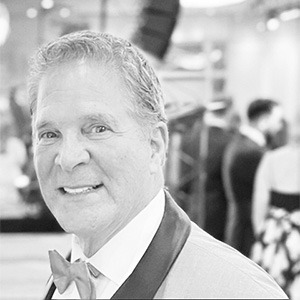 Darryl B. Cohen, attorney and counselor at law, Cooper, Estep & Allen LLC
Darryl B. Cohen, attorney and counselor at law, Cooper, Estep & Allen LLC
What do you wish new meeting professionals knew about your job?
They should realize that we, as attorneys, are similar to a policy, albeit with a slight difference. Insurance covers loss. Our job is to protect against loss, thereby trying to protect the new meeting planner. Please reach out to someone more experienced in insurance ASAP (before it “seems” necessary).
Read More: Contract Clauses You Need in 2025
What questions should first-time planners be asking?
First-time meeting planners should be asking only one question, a comprehensive one: What long-time/experienced professional can I reach out to as my mentor?
What ways can new meeting professionals make your job easier?
Run it by the necessary people. Ask questions in advance. Before you execute that possibly controversial decision, know the scope of your duties. Be aware of the parameters of your duties. Is time a true factor, or can the decision be delayed to develop a better, more comprehensive plan?
What are a few major considerations new event planners should keep in mind during the contract and negotiation process?
Always give yourself enough time to make informed decisions and never make a decision that could be important without adequate time to run it by the appropriate people.
What should new event planners consider from the hotel’s/venue’s side of the contract and negotiation process?
The hotel/venue is your partner. Remember the hotel/venue also must make decisions that may not be what you want or need. The person you are negotiating with also has people that he/she must answer to. They may not be able to provide what you want without going to their supervisor.
Finally: Both sides must normally be prepared to give and take in order to have a successful negotiation.
This article appears in the January/February 2025 issue. You can subscribe to the magazine here.



